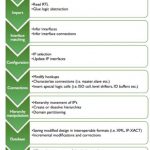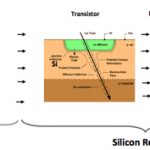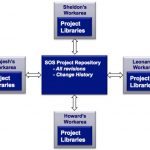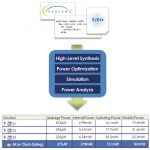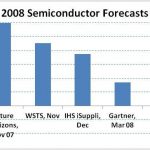You are currently viewing SemiWiki as a guest which gives you limited access to the site. To view blog comments and experience other SemiWiki features you must be a registered member. Registration is fast, simple, and absolutely free so please,
join our community today!
Cavium designs some very complex SoCs containing multiple ARM or MIPS cores at 32 and 64 bit. This complexity leads to major challenges in validating the overall chip architecture to ensure that their designs will meet the requirements of their customers once they are completed, with performance as high as 100Gbps.
Cavium have… Read More
Almost no design these days is created from scratch. Typical designs can contain 500 or more IP blocks. But there is still a big difference between the first design for a new system or platform, and later designs which can be extensively based on the old design. These are known as derivatives and should be much easier to design since… Read More
Often as we move down the process node treadmill, new challenges appear that we didn’t really have to worry about before. Often, these challenges require addressing at a number of different levels: the process, the cell libraries, the design, the EDA tools that we use.
One well known example is the problem of metal migration.… Read More
Most mixed-signal design teams don’t use data management. Well, that’s not entirely true, everyone has to do data management of some sort, it is just that it is often very ad hoc, often done by some vaguely systematic way of doing file naming, using email to keep track of changes, no access control and so on. This leads… Read More
Wally Rhines gave the keynote at DVCon yesterday. He started out with a game of “name that graph” which was unfortunately a bit spoiled since when the names were revealed the first line was off the top of the screen. But he extrapolated several trends such as the decreasing number of fabs (the current trend is that there… Read More
It is so widely accepted that it is already a cliche to say that “power is the new timing.” With more and more chips, the major challenge is not so much to meet timing but to meet timing without blowing out the power budget. Otherwise, you could just crank up the clock rate.
I’m going to be lazy so you can insert your … Read More
I recently blogged about the actions filed by Tela Innovations at both the US International Trade Commission (USITC) and in federal district court. Those actions allege that five mobile phone manufacturers -HTC, LG, Motorola Mobility, Pantech, and Nokia – were importing handsets into the US which infringed on seven of… Read More
The above quote is attributed to both physicist Niels Bohr and baseball’s Yogi Berra. The statement certainly applies to predicting the semiconductor market. Semiconductors operate on physical principles. However the market for semiconductors is affected by numerous factors. The outcome of a baseball game can be determined… Read More
Cadence ♥ ClioSoft!by Daniel Nenni on 02-20-2013 at 5:00 pmCategories: Cliosoft, EDA
Taking a look at the coveted presentation slots at the CDNLive Conference next month you will see a presentation on Data Management for Mixed-Signal Designs by one of my favorite EDA companies, ClioSoft. Great software, great support, great people, and with customers that are willing to talk publicly about their tools and technology.… Read More
A few years ago I was having breakfast with Jim Hogan at our favorite place to meet in Los Gatos. I was CEO of Polyteda and Jim was Chairman so we always had plenty to talk about. This time, however, the talk had turned to protecting a company’s intellectual property (IP). Jim had brought up the topic in the context of the looming legal … Read More



